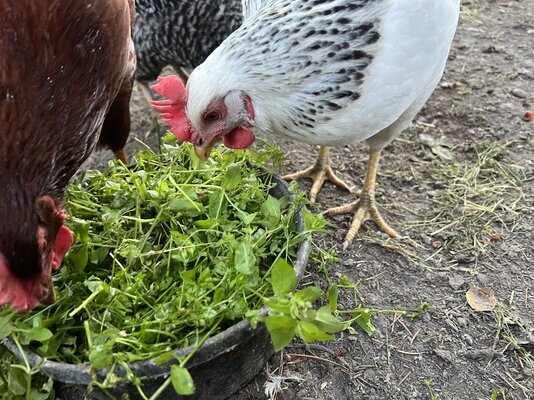As each night crisps a little more and I prepare my chicken shelter for another bitter winter, I'm taking advantage of all the greens available before the snow flies! The chickens have the opportunity to free range every afternoon, but their pasture is getting old and beaten down, so I like to offer them a bucket of fresh greens with their breakfast. And since I'm lazy, I've settled on the quickest harvest that the chickens enjoy the most: Chickweed.
This vitamin-rich succulent plant is the ultimate survivalist; it pops up like magic wherever the ground is broken up and the sun isn't too fierce. I hate it in the garden, where it creates a thick carpet and smothers all my seedlings, but since I discovered a thick patch in the horse pasture, it's like having a garden grown especially for the chickens - beautiful in its own way.
(Watch for stinging nettles, though. They like the same ground. I hear they are also great to forage and that their sting disappears when the plant wilts. Not my variety, as I discovered rather painfully when I grabbed them without gloves! I avoid them now.)

Chickweed is easy to harvest, pulling up by the roots or snapping off with a small twist. I've figured out my chickens can go through what fits in a 1.5 gallon bucket in a day. Anymore and it's just trampled. Another benefit of its crisp, succulent nature is that it breaks into pieces easily even after picking! Long strands of grass or other plants can coil up and clog in a chicken's crop, possibly causing illnesses like sour crop. I like to break it down into two to three inch clumps for my peace of mind. The chickens often break it down even further, but the greedy ones gulp it just as it is.


Rosehips
I'm blessed with bushes and bushes of wild roses in my area. They are loaded with ruby-gold rose hips this time of year, and I picked a quart in only fifteen minutes. I don't give them to the chickens all at once, but offer them as a treat, broken in half or crushed for easier consumption. Some chickens love the soft rind; other pick out every single seed. Either way, there are no rose hips left in the run by the end of the day. They can even be frozen or dehydrated for winter feeding.

And of course, there's plantain and dandelions, dried saskatoons, and the old, bolted lettuce stalks from the garden. My chickens aren't big fans of plantain - they play with it, but it's still an intact, wilted mass in the run by the end of the day. Not bad for composting, but not a winner in my books for breakfast veggies.
As the year winds down, take advantage of the temporary surplus of weeds and wild berries to build up your chicken's health and immune systems before it's back to fermented feed, kitchen scraps, and sprouts for the long months of winter.

This vitamin-rich succulent plant is the ultimate survivalist; it pops up like magic wherever the ground is broken up and the sun isn't too fierce. I hate it in the garden, where it creates a thick carpet and smothers all my seedlings, but since I discovered a thick patch in the horse pasture, it's like having a garden grown especially for the chickens - beautiful in its own way.
(Watch for stinging nettles, though. They like the same ground. I hear they are also great to forage and that their sting disappears when the plant wilts. Not my variety, as I discovered rather painfully when I grabbed them without gloves! I avoid them now.)
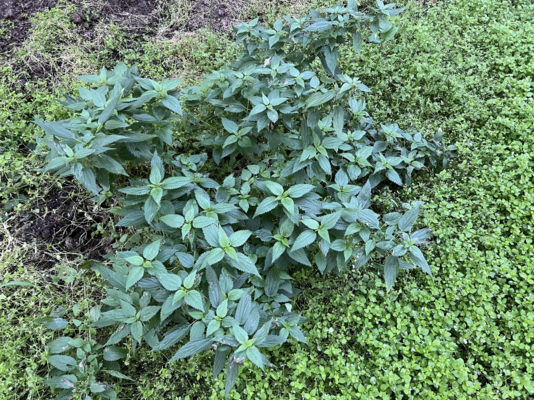
Chickweed is easy to harvest, pulling up by the roots or snapping off with a small twist. I've figured out my chickens can go through what fits in a 1.5 gallon bucket in a day. Anymore and it's just trampled. Another benefit of its crisp, succulent nature is that it breaks into pieces easily even after picking! Long strands of grass or other plants can coil up and clog in a chicken's crop, possibly causing illnesses like sour crop. I like to break it down into two to three inch clumps for my peace of mind. The chickens often break it down even further, but the greedy ones gulp it just as it is.
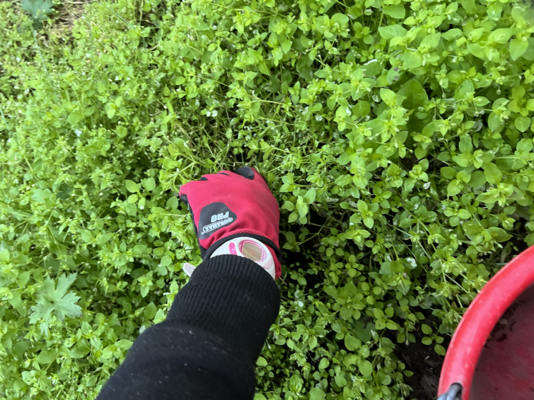
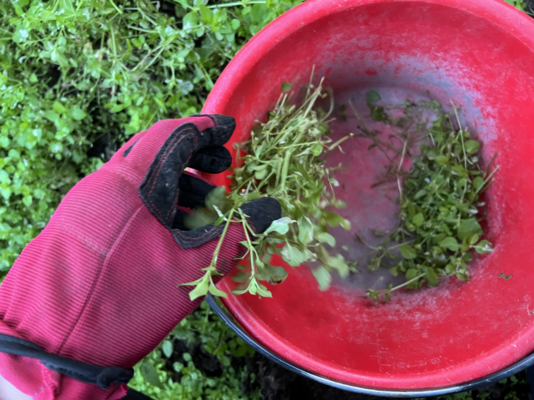
Rosehips
I'm blessed with bushes and bushes of wild roses in my area. They are loaded with ruby-gold rose hips this time of year, and I picked a quart in only fifteen minutes. I don't give them to the chickens all at once, but offer them as a treat, broken in half or crushed for easier consumption. Some chickens love the soft rind; other pick out every single seed. Either way, there are no rose hips left in the run by the end of the day. They can even be frozen or dehydrated for winter feeding.
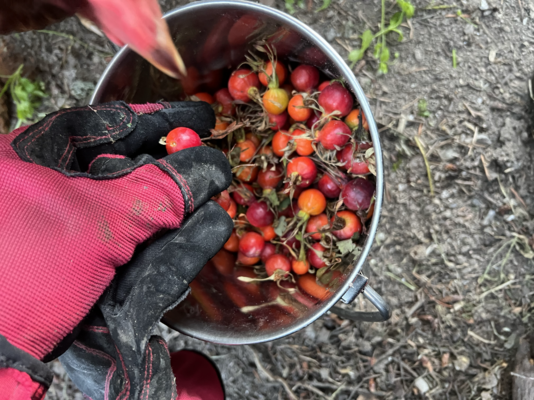
And of course, there's plantain and dandelions, dried saskatoons, and the old, bolted lettuce stalks from the garden. My chickens aren't big fans of plantain - they play with it, but it's still an intact, wilted mass in the run by the end of the day. Not bad for composting, but not a winner in my books for breakfast veggies.
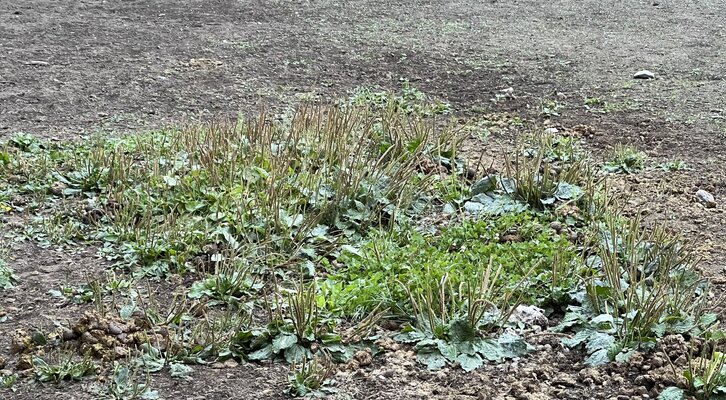
As the year winds down, take advantage of the temporary surplus of weeds and wild berries to build up your chicken's health and immune systems before it's back to fermented feed, kitchen scraps, and sprouts for the long months of winter.
